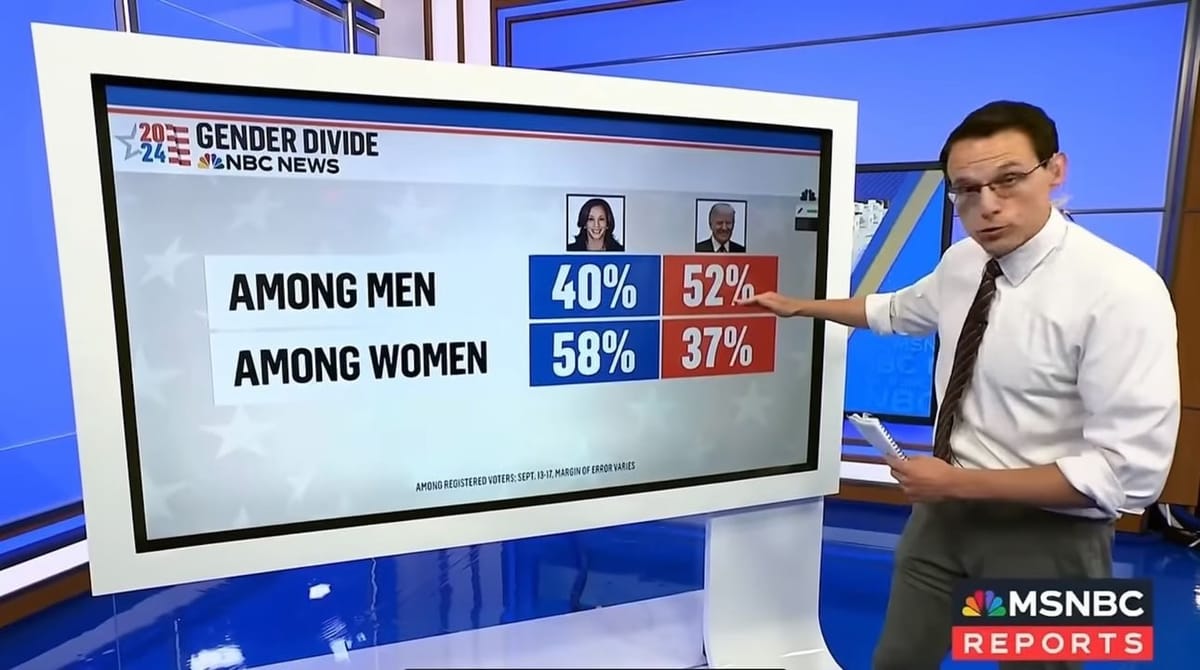Bridging the Gender Gap: Men Talking to Men About Kamala Harris
Discover why it's essential for men to engage other men in conversations about supporting Kamala Harris, bridging gender divides, and moving beyond limiting media narratives.

In the intricate mosaic of American politics, few divides are as pronounced—or as consequential—as the gender gap in voter preferences. As the nation grapples with pressing issues from economic recovery to social justice, the chasm between male and female support for figures like Donald Trump and Kamala Harris has become increasingly evident. This disparity isn't just a statistical anomaly; it's a reflection of deeper societal currents that warrant introspection. Now, more than ever, men have a pivotal role to play in reshaping this narrative by engaging in earnest dialogues with one another about Kamala Harris.
The data tells a compelling story. Surveys consistently show that women, particularly women of color, are more likely to support Kamala Harris, while a significant portion of men remain hesitant or opposed. This isn't merely a matter of differing opinions but signals a divergence influenced by various factors—including the media ecosystems that shape our perceptions.
Many men find themselves immersed in media spheres dominated by voices like Joe Rogan, Matt Walsh, Ben Shapiro, and networks like Fox News. These platforms, while offering a sense of camaraderie and affirmation, often present a singular perspective on political figures like Harris. The narratives crafted can sometimes skew perceptions, emphasizing certain traits while overlooking others, and reinforcing preconceived notions rather than challenging them.
So why should men take the initiative to converse with other men about Kamala Harris? Firstly, because shifting votes matters. The outcome of elections has profound implications for the direction of the country, and engaging in these conversations can directly influence electoral results in favor of policies that promote equality and justice.
Moreover, it's crucial to recognize that women have far more to lose under a Trump presidency. Policies affecting reproductive rights, healthcare access, workplace equality, and protections against discrimination disproportionately impact women. The potential rollback of reproductive freedoms, for instance, threatens women's autonomy over their own bodies. Cuts to healthcare programs could leave many without essential services, and a lack of commitment to addressing the gender pay gap perpetuates economic inequality.
Men need to consider not just their own interests but also the stakes for the women in their lives—their mothers, sisters, daughters, partners, and friends. Supporting a candidate like Kamala Harris means advocating for policies that safeguard the rights and well-being of these women. It's about recognizing that the political is personal, and that one's vote can either uphold or undermine the liberties and opportunities available to half the population.
By engaging in these dialogues, men can help ensure that the concerns and well-being of women are not marginalized. Discussing topics like equal pay, reproductive rights, and protection against sexual harassment can reveal the significant disparities that persist and the policies needed to address them. These conversations can foster empathy and a deeper understanding of the challenges women face, leading to more informed voting decisions that reflect a commitment to gender equity.
There's also an element of self-reflection involved. Acknowledging the influence of media figures and questioning whether these sources provide a holistic view of the political landscape is a crucial step toward independent thinking. By examining why certain narratives resonate, men can become more conscious of potential biases—both in the media they consume and within themselves.
This isn't just about talking; it's about taking action to shift votes in a direction that promotes equality and justice. Democracy thrives when citizens are well-informed and actively participate in shaping their government. Men have the opportunity to use their voices and influence to support candidates like Kamala Harris, who advocate for policies that benefit all, not just a select few.
Furthermore, these conversations can help mitigate the polarization that hampers productive discourse. By stepping outside echo chambers, men can appreciate the nuances in political debates and recognize the legitimacy of concerns on all sides. This not only enriches individual understanding but also contributes to a more cohesive society.
In a time when misinformation can spread rapidly and divisive rhetoric often drowns out constructive discussion, the act of reaching out becomes a form of civic duty. Men talking to other men about Kamala Harris—and by extension, the broader issues at stake—can pave the way for more balanced and empathetic political engagement.
Ultimately, bridging the gender divide in political support is about shifting votes to create meaningful change. By engaging in meaningful conversations, men have the opportunity to challenge assumptions, broaden horizons, and contribute to a more informed and equitable electorate.
As the nation stands at a crossroads, the need for inclusive dialogue has never been greater. The stakes are high, and the time for passive observation has passed. It's time to talk, to act, and to vote for a future that upholds the rights and dignity of all citizens.





